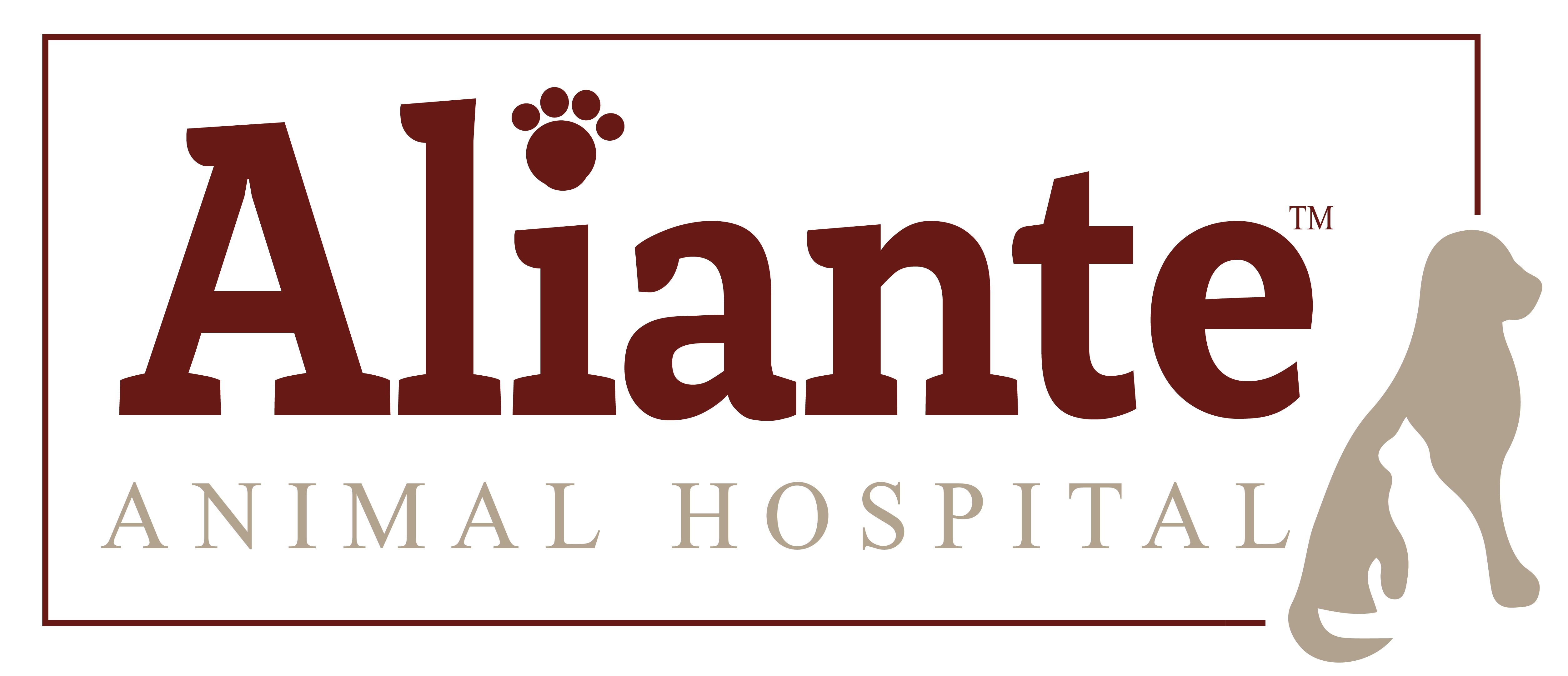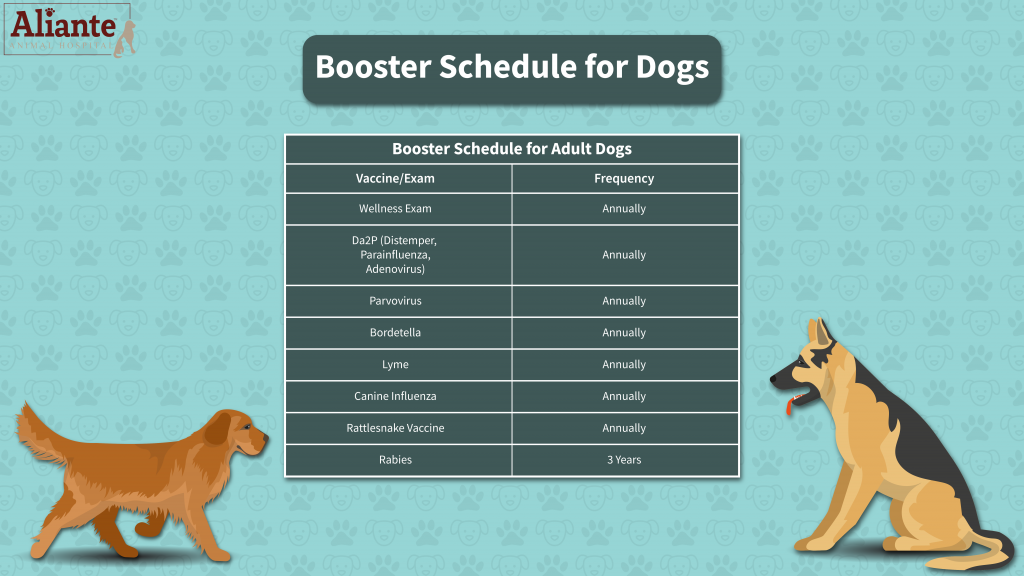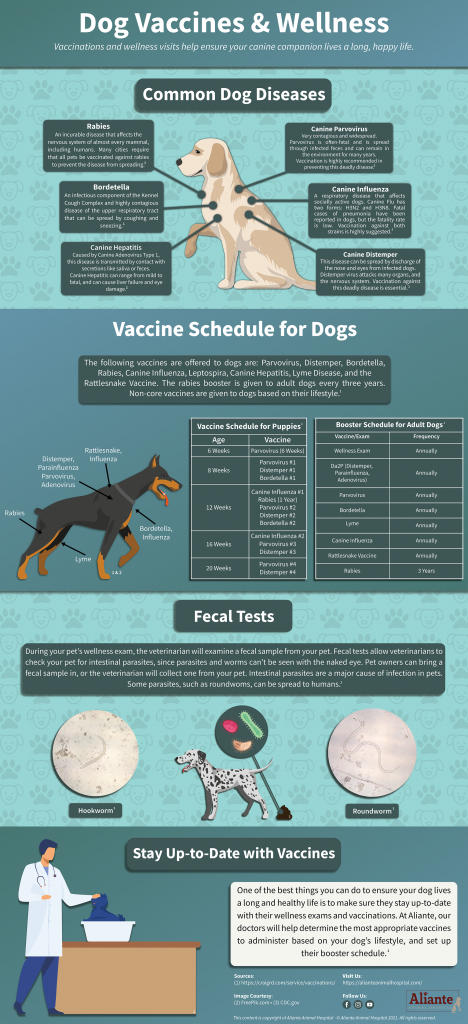Congratulations on your new puppy! The staff at Aliante Animal Hospital are here for any questions or concerns you may have about your new furry friend. When you’re ready for the first check-up, we’ll be glad to ensure your pet’s health is kept in top shape. Our facility is equipped with the best medical equipment and friendly pet-loving staff.
Basic Tips for Puppy Care

Spay or neuter. Talk about preventive medicine! Spaying and neutering can help prevent reproductive cancers, unwanted pregnancies, and some behavioral problems.
See your vet twice a year. You go to the doctor regularly – and so should your pet.
Get moving. Not only will daily exercise keep your pet physically fit and mentally healthy, but it also helps channel anxious and destructive behaviors.
Don’t forget your pet’s teeth. Tackle tartar with regular dental cleanings as advised by your veterinarian. Join in with home dental care using dental rinses, dental chews, and brushing your pet’s teeth daily with special toothpaste formulated for pets.
Pet insurance. The sooner you buy pet insurance, the more comprehensive coverage you’ll have for your pet in the future. Consult with your veterinarian to see if pet insurance is something you’ll need.
Avoid toxic foods. Avoid foods such as alcoholic beverages, avocado, chocolate and coffee, over-the-counter medication, i.e. aspirin, ibuprofen, etc; fatty foods, macadamia nuts, moldy or spoiled foods, onions, onion powder, and garlic; raisins and grapes, salt and yeast dough.
Wellness Exams

The most important part of your pet’s visit to our hospital is a comprehensive physical examination. During the wellness exam, our doctors spend time checking all your pet’s major systems including heart, lungs, skin, and teeth for evidence of problems or signs of discomfort. Part of the assessment will include your pet’s lifestyle, age, breed, and health status to determine the appropriate vaccine schedule for your pet.
Based on the wellness exam findings, the doctor will create an individualized preventative care plan for your pet that may include parasite control, heartworm prevention, routine dental cleanings, and nutrition recommendations. Did you know that dogs and cats age seven times faster on average than people do, and significant health changes can occur in a short amount of time? Plus, the risks of cancer, diabetes, obesity, arthritis, heart disease, metabolic problems, and other serious conditions increase with age. These are the reasons why we recommend wellness exams for all pets twice a year.
Vaccines
One of the most important things you can do to give your dog a long and healthy life is to make sure they stay up-to-date with their vaccinations and wellness exams. Your veterinarian will ask about your pet’s lifestyle, age, breed, and health status to determine the most appropriate vaccine schedule. Based on the wellness exam findings, the doctor will create an individualized preventative care plan for your pet.
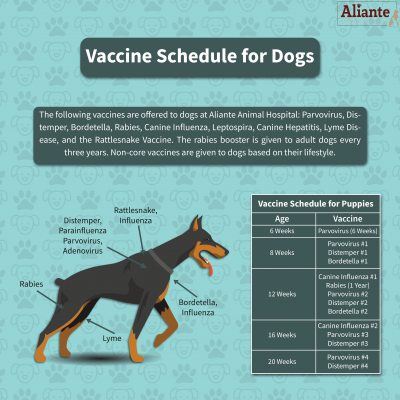
The following vaccines are offered at Aliante Animal Hospital:
Canine Distemper
Canine Parvovirus
Canine Hepatitis
Rabies, Leptospira
Canine Influenza
Bordetella
Rattlesnake Vaccine
Lyme Vaccine
Vaccine Reactions. Vaccine reactions occur because of the way an animal’s immune system reacts to the vaccine product. Vaccine reactions are not the result of the amount of vaccine injected or administration technique. If your pet does have a vaccine reaction treatment typically consists of injectable antihistamines, steroids, intravenous fluids, and occasionally epinephrine, at an additional cost to you. Some local vaccine reactions may take weeks to develop. If your pet has developed vaccine reactions in the past, we may recommend vaccine titers if applicable or pre-placement of an IV catheter, and pre-treatment with antihistamines.
Signs to look for include:
- Vomiting
- Diarrhea
- Facial Swelling
- Fever
- Not Eating or Drinking
- Decreased Activity
Worms & Parasites
Various creepy-crawlers like to make themselves home on or inside your pet. The soft, warm fur of dogs and cats provides the perfect environment for fleas and ticks, whereas intestinal parasites like hookworms feed on blood and tissue. These pests and parasites can be transmitted from other insects (like mosquitoes), coming into contact with other infected animals, or via ingestion. During your pet’s wellness exam, our veterinarians will look for any signs of fleas, ticks, or other parasites that could affect your pet’s health.
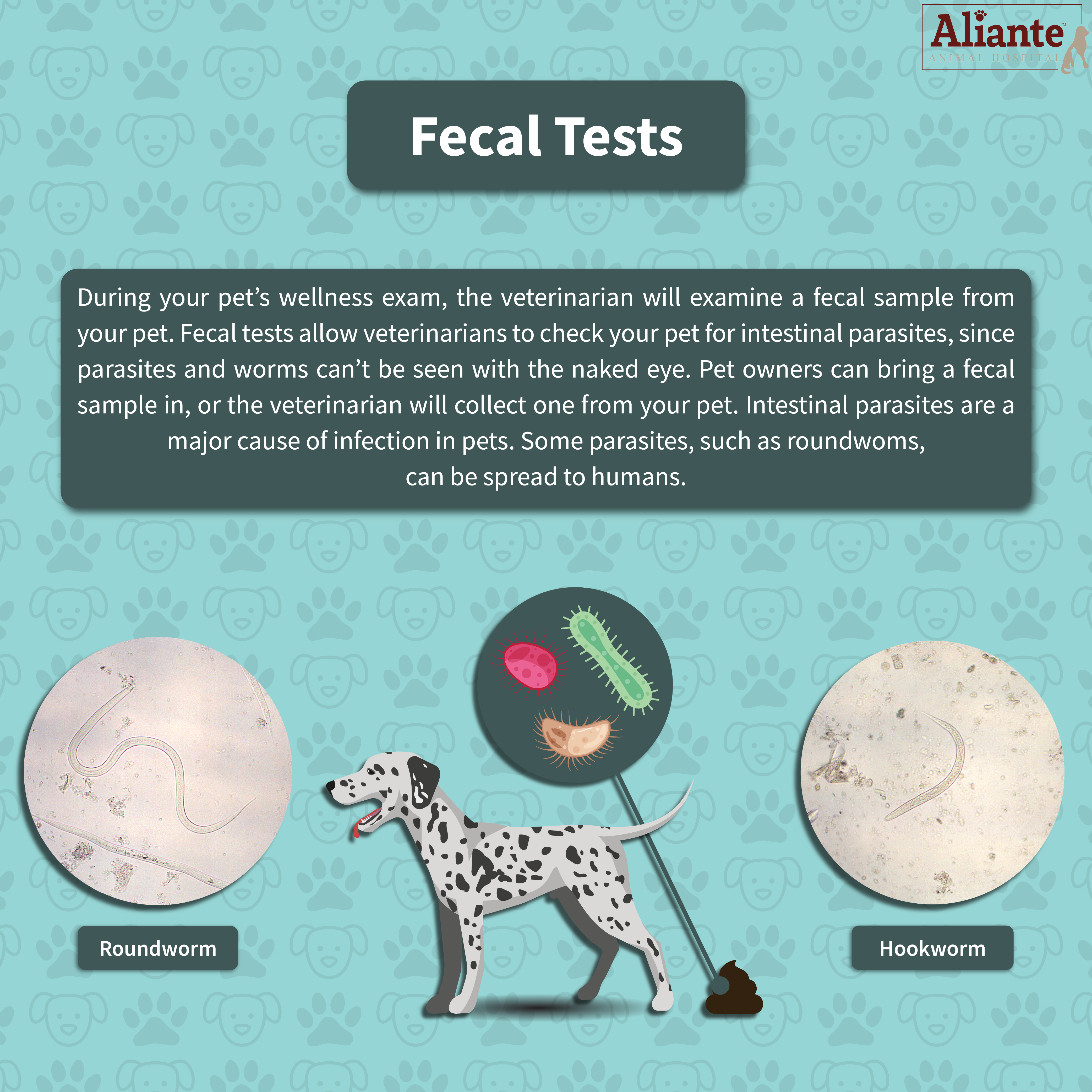
Heartworm Testing. Heartworm disease is becoming increasingly more common in Las Vegas due to the increase in lush landscapes, golf courses, and pools, which serve as breeding grounds for mosquitoes. Heartworm disease is a serious and potentially fatal disease caused by the parasite (Dirofilaria immitis), which is spread by the bite of an infected mosquito. Once your dog is bitten by a mosquito, the larva travels thru the bloodstream, to the right side of the dog’s heart, and the large blood vessels going into the lungs. Once infected, it can take six to nine months for the larva to develop into the adult heartworm, with no signs of heartworm disease until an advanced disease is present.
To protect your pet we recommend:
- Annual heartworm testing
- Use of heartworm prevention year-round
- Ectoparasite control (flea/ticks/mosquito repellant) as needed for outbreaks and infestations, and for pets traveling outside of Las Vegas
Intestinal Parasite Control. Your pet may have intestinal parasites without you even knowing it. Intestinal parasites live in your pet’s intestinal tract and rob your pet of essential nutrients. The best way to detect intestinal parasites is to have your pet’s stool examined under a microscope to look for the microscopic eggs that are released in your pet’s stool. We recommend testing all puppies and kittens twice during their pediatric visits. It is best to collect your pet’s stool and bring it with you. The cost for an intestinal parasite test is $23. To ensure your pet is parasite-free we recommend:
- Neonatal de-worming and intestinal parasite testing at each wellness visit
- Annual de-worming and intestinal parasite testing for all adult pets during their wellness visit
Vaccine/Booster Schedule
Click on the image for full size.
Spay/Neuter Services
Dogs that are not going to be bred should have their reproductive abilities removed. Spaying and neutering can have significant health benefits for your pet, in addition to also preventing an unexpected litter of puppies, which can add to the homeless pet problem. For many people, spaying/neutering their pet is the first veterinary surgical procedure they have ever been involved with, if indeed not the first surgical procedure period. It can be confusing and scary – our job is to answer your questions and give you all the information to make an informed choice about what is right for you and your pet; whether that be pre-operative blood work, I.V. catheters, pain medications, and/or pain control.
The doctors at Aliante Animal Hospital recommend that small dog breeds be sterilized around 6-months of age, mid-sized breeds around 9-months of age, and larger breeds when they’re a year old.
Microchipping

Microchipping is a quick, simple procedure in which a microchip is injected underneath your pet’s skin. The microchip is the size of a grain of rice and is inserted in the shoulder blade area. The microchip is encoded with an alphanumeric identifier that is unique to your pet. Microchipping can be done at any age but is commonly performed during spay or neuter surgical visits.
Benefits of getting your pet microchipped include:
- Often required for the identification of pets during travel.
- Permanent, unlike collars they cannot be removed if your pet is lost, stolen, or accidentally escapes.
- Lasts the lifetime of your pet.
- A most effective way to ensure your pet is returned to you.
The microchip fee is $45.00 which includes the registration to the HomeAgain National Recovery Database.
Our philosophy of preventative care is centered upon regular wellness exams, health risk assessments, screening tests, and pet owner education. Together, these aid in designing an effective treatment plan that keeps your pet’s needs at heart. Thank you for your confidence in our team!
For more on puppy wellness and overall dog health, take a look at this infographic:
